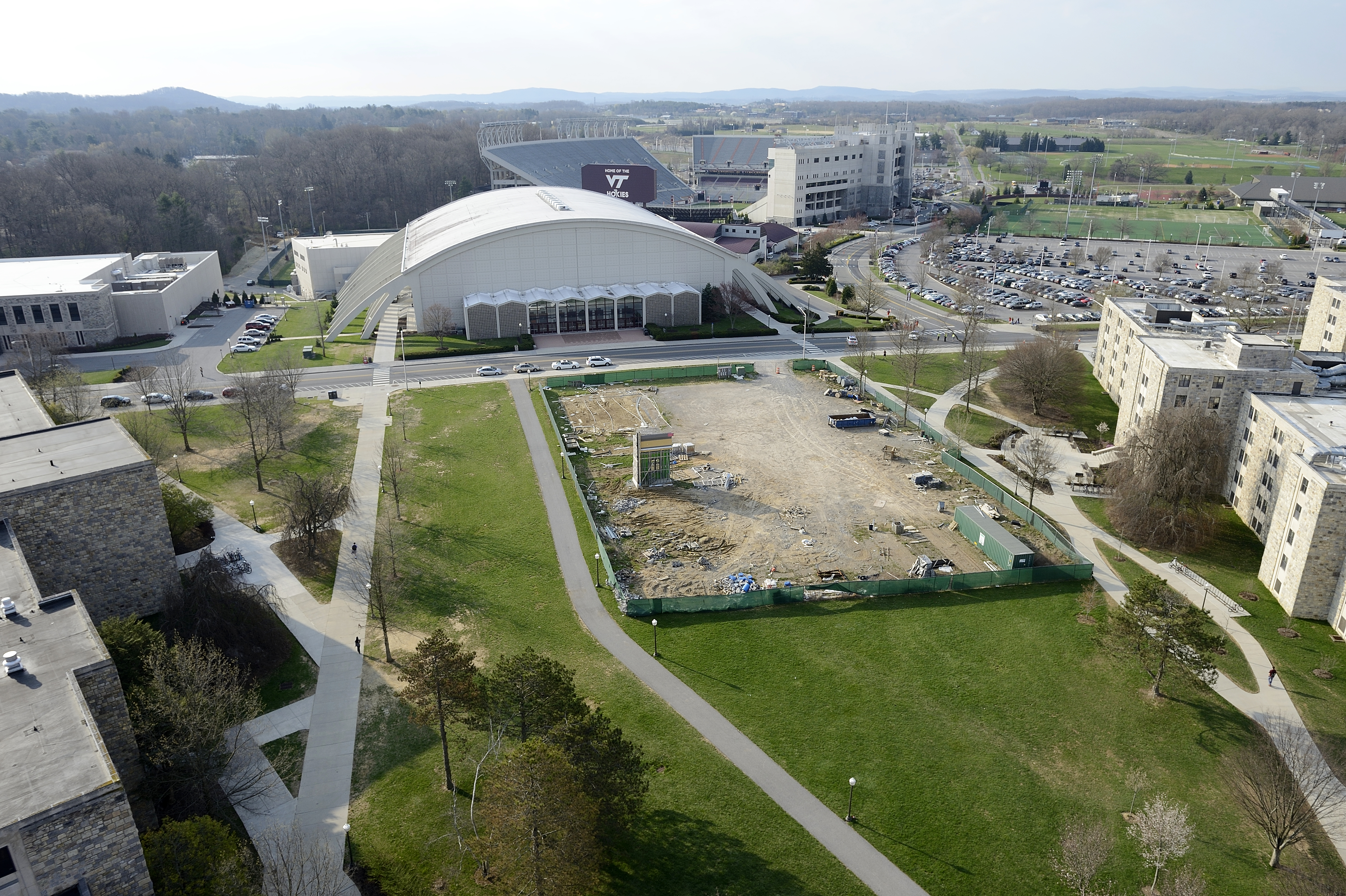Dietrick Lawn to become open space once again

Dietrick Lawn, which has served as a contractor staging area for the last several years, will once again become a space for students to gather, relax, and play.
The lawn, which is between Dietrick Hall and Washington Street, was turned into a construction staging area in 2009. It was used to store construction supplies and equipment, and provided project management space for contractors during the renovation of Ambler Johnston Hall and the construction of the Davidson Hall addition.
“Dietrick Lawn gave our contractors the space they needed to manage multiple projects. Now that the work is complete the lawn will once again be open space for students to enjoy,” said Mark Helms, interim associate vice president and chief facilities officer.
All contractor items and the fence should be removed by mid-May. The grass will be re-seeded and the area should be ready for student use by the fall semester.
“Although the current Virginia Tech student only knows the Dietrick Lawn as a construction platform, it has long been recognized as a vibrant student hangout full of energy and life. It's a true joy to return this green space back to students for studying, playing sports, and the kinds of moments that make Virginia Tech's campus among the most beautiful and vibrant,” said Frank Shushok Jr., senior associate vice president, Division of Student Affairs.
Since 2011, Virginia Tech has built or renovated 15 buildings on campus. In addition, the University Design and Construction Department is currently managing 11 major projects in various stages of design or construction. To date, eight campus buildings have received LEED certification under the U.S. Green Building Council green building rating system.
Dedicated to its motto, Ut Prosim (That I May Serve), Virginia Tech takes a hands-on, engaging approach to education, preparing scholars to be leaders in their fields and communities. As the commonwealth’s most comprehensive university and its leading research institution, Virginia Tech offers 240 undergraduate and graduate degree programs to more than 31,000 students and manages a research portfolio of $513 million. The university fulfills its land-grant mission of transforming knowledge to practice through technological leadership and by fueling economic growth and job creation locally, regionally, and across Virginia.



.jpg.transform/m-medium/image.jpg)
